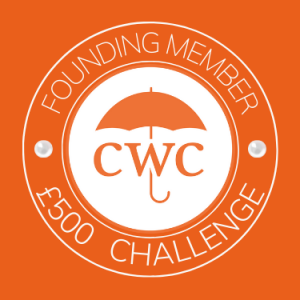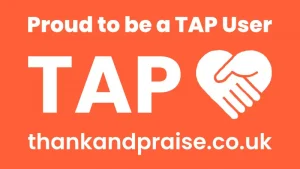Over recent years, and particularly since the publication of the NHS Long Term Plan in 2019, NHS organisations and the social care, support and housing sectors have led a step-change in the way they work together to improve outcomes for people with severe and enduring mental ill health.
In London and the South-East, Look Ahead have been working with NHS partners for over a decade to provide integrated mental health support and care services in the community. This includes forensic mental health and other specialist supported accommodation, floating community & medication support, CQC registered care services and integrated hospital discharge teams.
Since August 2020, Look Ahead has been working in partnership across North Central London to help people who receive treatment in inpatient mental health wards to return to the community more quickly and successfully. One of the projects is a partnership with Camden & Islington NHS Foundation Trust (C&I).
Our Integrated Hospital Discharge and Community Support Service, based at the Highgate Mental Health Centre, was initially piloted as part of the Trust’s COVID-19 recovery and resilience programme. The service was initiated to support those who were ready to leave inpatient wards but who face other, non-medical, barriers to returning to the community. From the outset C&I and Look Ahead were clear about the need to develop the project as a collaborative pilot which could be adapted during the delivery phase as we tested approaches, learned from what worked and developed a clearer understanding of patients’ needs. In practice this meant:
- Working jointly during the mobilisation of the project to identify a shared office space for Look Ahead’s team of Assistant Clinical Practitioners & management and the existing C&I discharge team including psychiatry, psychology and social work leads
- Working with this joint team and other organisational stakeholders – for example, the Trust executive leadership – to agree what success would look like and how to measure and demonstrate this among partners and across the wider health and social care system
- Pro-active focus on a shared single-team culture during mobilisation, for example, making sure every member of the team understands and values each others’ role and expertise, developing a shared language to ensure clarity between professional specialists from diverse clinical, social care and housing backgrounds
- Embedding a bi-weekly strategic decision making meeting where issues could be discussed and resolved quickly, for example, agreeing enhanced delivery hours, staffing levels, hardship funding and later broader enhancement of the service into the community
In the 18 months since the pilot service began, Look Ahead’s Assistant Clinical Practitioners have worked with 437 patients referred into the service by C&I’s discharge leads. The work has focussed on issues preventing people from leaving hospital which the existing discharge team didn’t have the capacity or practical experience to work with patients to review, plan and resolve.
Typically issues have been around housing related issues, supporting patients to suitable, permanent and safe tenancies, secure social care packages where there is a gap, accessing longer term intensive community support, proactive community engagement where risk of social isolation results from a lack of support networks and other utility, welfare benefit claim, documentation and immigration related-issues.
The team has gone through several configurations since the pilot began but currently comprises a full-time manager, 1 full time and 2 part time ACPs and the newer floating support service has a team leader and 6 support workers.
As of the end of January 2022, the team had an active case load of 29 patients with 30 patients having been discharged with Look Ahead support in that month. Of the over 400 patients who have been discharged up to 31 January 2022, just 28 patients have subsequently been readmitted to date, none of whom had experienced a subsequent tenancy breakdown with the overall rate of those being discharged to settled accommodation increasing by 70%.
From April 2021, the partnership agreed to enhance the service with a dovetailing Community Floating and Medication Support element. As well as enhancing the integrated discharge team and working with patients as they leave hospital for an extended period, this element of the service works with people in the community to prevent admission altogether and focus particularly on reducing the overall local emergency readmission rate i.e. people returning to hospital within 30 days of leaving. A key focus of this service is working with people to pro-actively resolve issues before they become a risk to people’s health and sustained time in the community. We offer a seven days per week and out-of-hours medication support service, toward independence, as well as support to unpick tenancy, social or other issues before they escalate. In our review of the service at the end of the year our partnership discusses how, since April, the emergency readmission rate in Camden and Islington and dropped from 11% to a low of 3% and was currently stabilised at 5% – with the only change in the discharge and support process in that time being the Community Support enhancement.
One of the key factor in the success of the services to date has been the availability of a Hardship Fund. It is a pot of money which patients can access via the service to make one-off payments for items or services which will promote long term resolution of barriers to discharge and life in the community. There is a clear governance process for allocation of these funds and typically they have been used to fund white goods, one off utility payments for which a long term solution is in place, food, clothing and in one instance support for accompanied repatriation of a patient who was doing well and identified their goal of returning to their family in Canada.
At the start of the project, one of the things that the partners wanted to build through the process was clinical confidence in working with third sector partners like Look Ahead. It was why we co-produced the measures of success with clinicians and one of the most positive outcomes of the service for our organisations has been the strong support and clinical advocacy for the services to continue. For example, Consultant Psychiatrist Dr Neil Stewart stated “The model of having our own in-house team who know about housing, GP registration and benefits is hugely useful. I think that having a small team who have the necessary expertise really works. The care coordination model is largely broken when it comes to quickly sorting out complex housing/social issues.”
To date the services have been funded through a number of short term funding allocations from the NHS (winter pressures & covid recovery funds )which both Look Ahead and the Trust are keen to see transform via longer term ICS-led commissioning which builds upon the pilots we’re delivering. We have shown that our model can help local systems overcome recruitment challenges by working in partnership – our Assistant Clinical Practitioner and Specialist Support Worker roles are an excellent and desirable step up for experienced staff working in our or other similar services and those who, perhaps, are continuing their professional development, studying social work or undergraduate and postgraduate psychology degrees.
Through partnership we have improved the experience of people coming out of hospital, supporting them to leave earlier (which results in significant financial savings for the system) and by continuing to work with them in a more structured way, sustain their return to the community.
Note : Look Ahead have a number of other jointly delivered services with the NHS including a new Early Intervention in Psychosis service with Camden and Islington and they are working with East London NHS Foundation Trust on jointly delivered Crisis Houses, Rehabilitation Services and Forensic Services.





